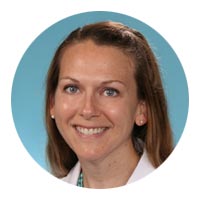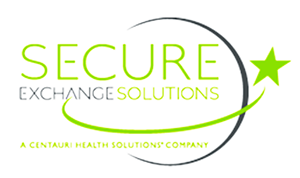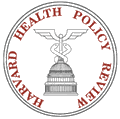About the Event
The National Hospital Acquired Conditions and Readmissions Summit is the leading forum on current CMS policy implications and reduction strategies for Hospital Acquired Conditions and Readmissions, including the latest in patient safety initiatives and technology-enabled solutions for transitions of care and patient engagement. The Summit will highlight successful hospital strategies and tools, but equally important will feature some of the important new partnerships and collaborations.
For more about the event, click here.
Produced by


REGISTER NOW
Click Here to register.
————————————————————
FEATURED FACULTY

Caroline S. Blaum
Senior Research Scientist, NCQA; Former Diane and Arthur Belfer Professor of Geriatric Medicine and Director of the Division of Geriatrics, NYU Langone Health and NYU School of Medicine, Washington, DC

Demetri Goutos, MBA
Research Associate, Center for Outcomes Research and Evaluation, Yale/Yale New Haven Hospital Center, New Haven, CT

Karen Joynt Maddox, MD, MPH
Co-Director, Center for Health Economics and Policy, Institute for Public Health, Washington University in St. Louis, St. Louis, MO

Sheila Madhani, MA, MPH
Vice President, McDermott+Consulting; Former Assistant Director for Medicare Policy, American Society for Radiation Oncology, Washington, DC

Florian B. Mayr, MD, MPH
Assistant Professor of Critical Care Medicine, University of Pittsburgh; Co-author, Proportion and Cost of Unplanned 30-day Readmissions after Sepsis Compared with other Medical Conditions, Pittsburgh, PA

Michelle Schreiber, MD
Director, Quality Measurement & Value Based Incentives Group, Centers for Medicare and Medicaid Services; Former Chief Quality Officer, Henry Ford Health System and Detroit Medical Center, Washington, DC
Summit Agenda
Day One: Tuesday, May 10, 2022
1:00 PM to 2:30 PM Eastern
“CMS National quality strategy, patient safety and overall quality metrics”
Michelle Schreiber, MD, Deputy Director for Quality & Value, CMS, Clinical Standards and Quality
“Outlook from DC: What’s on the Horizon for Medicare Quality Programs”
Sheila Madhani, Vice President, McDermott+Consulting
“Patient engagement and Care in the home: Addressing utilization from the patient perspective”
Caroline Blaum, MD, MS, Senior Research Scientist, NCQA
Day Two: Wednesday, May 11, 2022
1:00 PM to 2:30 PM Eastern
“Hospital Acquired Conditions during COVID-19 hospitalization in a high-risk national population”
Florian B Mayr Assistant Professor of Critical Care Medicine University of Pittsburgh
“Three-Year Impact Of Stratification In The Medicare Hospital Readmissions Reduction Program”
Karen Joynt Maddox, MD, MPH, Co-Director, Center for Health Economics and Policy, Institute for Public Health, Washington University in St. Louis
“Factors Associated With Disparities in Hospital Readmission Rates Among Dual Eligibles”
Demetri Goutos, MBA, Research Associate, Center for Outcomes Research and Evaluation, Yale/Yale New Haven Hospital Center
Summit Overview
Hospitals and healthcare providers are focused on reducing specific Hospital-Acquired Conditions that occur frequently, can cause significant harm, and are often preventable based on existing evidence. For example, one such condition - Central Line-Associated Bloodstream Infections, affect tens of thousands of patients every year, cost between $30,919 – $65,245 each to treat, have a mortality rate of 12 – 25%, and can increase the length of a patient’s hospital stay by an average of 8 days. CMS administers the Hospital-Acquired Condition (HAC) Reduction Program as a Medicare value-based purchasing program that reduces payments to hospital based on how they perform on measures of hospital-acquired conditions, with the objective of encouraging hospitals to implement best practices to reduce their rates of healthcare–associated infections and improve patient safety.
An estimated $25 billion is spent annually on preventable hospital readmissions that result from medical errors and complications, poor discharge procedures, and lack of integrated follow-up care. CMS continues to refine and place emphasis on The Hospital Readmissions Reduction Program (HRRP) and other policy measures to address readmissions, with much at stake for hospitals, health systems and other providers. Payers, particularly those heavily involved in Medicare Advantage and Medicaid Managed Care, along with platforms offering technology-enabled solutions, are increasingly involved in collaborations and innovations focused on addressing readmissions management.
The National Hospital Acquired Conditions and Readmissions Summit brings together the leading national experts in payment policy, care delivery, patient safety, operations, and technology and innovation from government, academia, the research community, health plans, hospitals, and community agencies. Highly successful models will be highlighted.
The National Hospital Acquired Conditions and Readmissions Summit is the leading forum on current CMS policy implications and reduction strategies for Hospital Acquired Conditions and Readmissions, including the latest in patient safety initiatives and technology-enabled solutions for transitions of care and patient engagement. The Summit will highlight successful hospital strategies and tools, but equally important will feature some of the important new partnerships and collaborations.
In order to facilitate greater engagement, networking and potential collaboration from provider, payer and government stakeholders in this virtual event, registration fees will be waived for attendees participating from these organizations.







